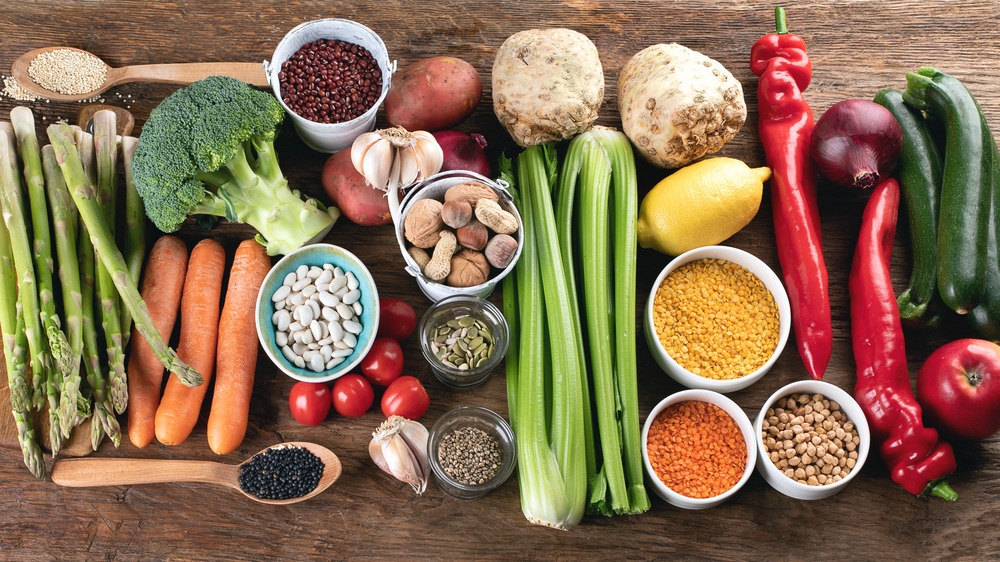Can You Get COVID-19 And The Flu At The Same Time?

It’s that time of year again. The leaves are changing color, the air is crisp and cool, and everyone is getting sick. But this year is different. This year, we’re dealing with a pandemic. And one of the most common questions we’re hearing is, “Can you get COVID-19 and the flu at the same time?” The answer is yes, you can. In fact, you can get any combination of respiratory illnesses at the same time. But before you start panicking, there are a few things you should know. First, it’s important to understand that the flu and COVID-19 are both respiratory illnesses. They both cause fever, cough, and shortness of breath. And they’re both spread through droplets from sneezing and coughing. So, if you’re sick with one, it’s not surprising that you might get the other. In fact, it’s quite common. Second, you should know that getting both illnesses at the same time is not necessarily more severe than getting one or the other. The symptoms might be more severe, but the overall prognosis is the same. Third, if you do get both illnesses, it’s important to seek medical attention. This is because the symptoms of one can mask the symptoms of the other. So, if you’re having trouble breathing, or your fever is high, it’s important to go to the hospital. Finally, it’s important to remember that you can take steps to prevent both illnesses. Get a flu shot, wash your hands, and stay home if you’re sick. So, there you have it. Yes, you can get COVID-19 and the flu at the same time. But it’s not necessarily more severe than getting one or the other. And you can take steps to prevent both illnesses.
COVID-19 and the flu are easy to confuse
because they both cause respiratory symptoms, but there are some key differences When it comes to respiratory illnesses, there are a lot of similarities between the flu and COVID-19. Both can cause fever, coughing, and difficulty breathing. However, there are some key differences that you should be aware of. Here’s a quick rundown of how these two illnesses differ: For starters, COVID-19 is caused by a new virus (SARS-CoV-2) that we don’t have immunity to, whereas the flu is caused by a virus (influenza) that we’ve been dealing with for centuries. This means that the flu is generally less severe than COVID-19, although there are always exceptions. Another big difference is the incubation period. With the flu, you tend to start feeling sick pretty soon after you’re infected (usually within a day or two). With COVID-19, the incubation period is longer – it can take up to 14 days for symptoms to appear. This means that you can spread the virus for a week or more before you even know you’re sick, which is one of the reasons why it’s so difficult to control. Finally, there are some differences in the symptoms themselves. With the flu, you’re more likely to have a sudden onset of symptoms like fever and muscle aches. With COVID-19, the symptoms tend to be more gradual. And while both illnesses can cause a cough, COVID-19 is more likely to cause a dry, non-productive cough, whereas the flu is more likely to cause a wet, productive cough. So, next time you’re feeling under the weather, pay attention to the symptoms you’re experiencing. If you have a sudden onset of fever and muscle aches, it’s more likely the flu. But if you have a gradually worsening cough and difficulty breathing, it’s more likely COVID-19. Either way, it’s always best to err on the side of caution and see a doctor if you’re not sure.
Recommended
NEXT UP
Why A Plant-Based Diet Is Different From Going Vegan

Hey everyone! I'm sure many of you are familiar with the terms "plant-based diet" and "veganism" but maybe you're not quite sure what the difference is. For starters, a plant-based diet is not the same as a vegan diet. A plant-based diet is focused on whole, unprocessed plant foods, while a vegan diet excludes all animal products, including honey, eggs, and dairy. So why would someone choose a plant-based diet over a vegan diet? There are a few reasons! 1. A plant-based diet is more sustainable. The United Nations has said that a plant-based diet is necessary to save the planet. Why? Because the animal agriculture industry is responsible for a huge amount of greenhouse gas emissions, water pollution, and deforestation. Not to mention, it's incredibly resource-intensive. It takes far more land and water to raise animals for food than it does to grow plants. 2. A plant-based diet is healthier. A plant-based diet has been shown to reduce the risk of heart disease, stroke, cancer, and diabetes. That's because plant-based foods are naturally low in saturated fat and cholesterol and high in fiber, antioxidants, and phytochemicals. These nutrients work together to protect your body against chronic disease. 3. A plant-based diet is kinder. Animals raised for food are typically kept in cramped, filthy conditions and are subjected to painful procedures. They're also fed a diet of unnatural foods that can make them sick. On a plant-based diet, you can be sure that no animals were harmed in the making of your meal. 4. A plant-based diet is more delicious than you think! Gone are the days of boring, bland vegan food. There are now so many delicious plant-based recipes and products available that anyone can enjoy a plant-based diet, whether you're a seasoned vegan or just starting out. So there you have it! These are just a few of the reasons why a plant-based diet is different from going vegan. If you're looking to improve your health, help the environment, or be kinder to animals, a plant-based diet is a great choice.
Breaking down a plant-based diet
Are you considering a plant-based diet? Not sure where to start? Don't worry, we're here to help! In this blog post, we'll break down a plant-based diet and share some tips on how to make the transition. A plant-based diet is one that focuses on plants for food. This includes fruits, vegetables, grains, beans, and nuts. It does not include meat, dairy, or eggs. There are many reasons to consider a plant-based diet. For one, it is better for your health. A plant-based diet has been shown to reduce the risk of heart disease, cancer, and diabetes. It can also help you lose weight and lower your cholesterol. Another reason to consider a plant-based diet is for the environment. Raising animals for food requires a lot of resources, including water, land, and food. This can lead to deforestation and habitat loss. A plant-based diet requires far fewer resources and is better for the planet. If you're interested in trying a plant-based diet, there are a few things you should keep in mind. First, make sure you're getting enough protein. You can do this by including beans, nuts, and whole grains in your diet. Second, make sure you're getting enough vitamins and minerals. You can do this by eating a variety of fruits and vegetables. Lastly, stay hydrated. Drink plenty of water and avoid sugary drinks. Making the transition to a plant-based diet can be challenging, but it's worth it. Not only is it better for your health, but it's also better for the environment. With a little planning, you can make the switch and enjoy a delicious, nutritious, and sustainable diet.


